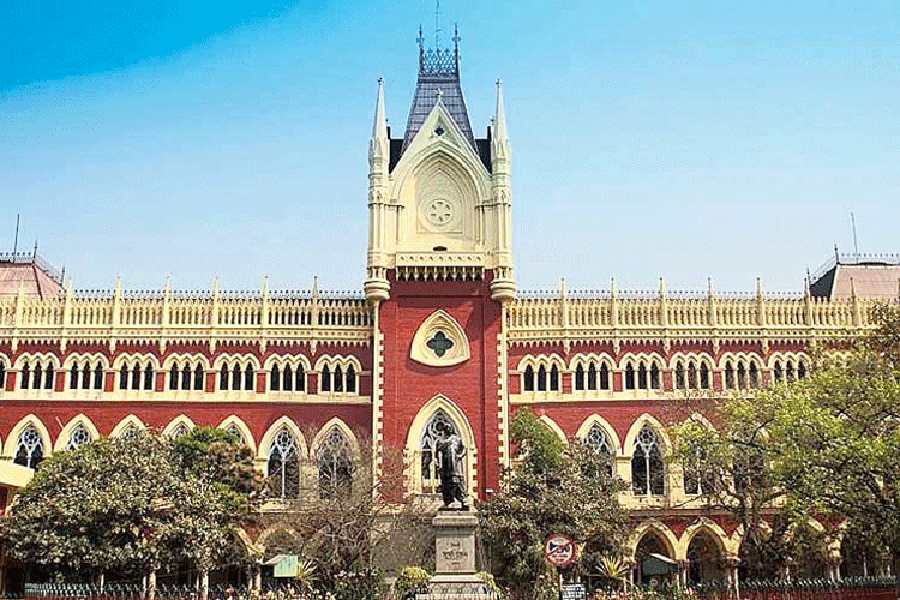West Bengal Industrial Development Corporation (WBIDC) has moved Calcutta High Court to set aside the arbitral award which landed Tata Motors Ltd close to Rs 1,400 crore in compensation for expenditures made by the automobile major in the ill-fated Singur small car factory.
The Bengal government entity, which had leased out 997.11 acre land to Tata Motors and its approved vendors in 2006, has preferred the appeals under Section 34 and 36 of the Arbitration & Conciliation Act 1996 before the HC.
Section 34 of the Act gives recourse to the aggrieved party to file an appeal to set aside an arbitral award. However, mere application to set aside the award under Section 34, does not itself render that award unenforceable. The aggrieved party has to file a separate application under Section 36 to seek stay on the enforcement of the award.
Both the matters are expected to come up before Justice Moushumi Bhattacharya on Monday.
While WBIDC’s pleas will be heard by the court for the first time, Tata Motors has already filed an application to enforce the arbitral award and it came up before Justice Bhattacharya on February 13. The matter has been listed on Tuesday.
The legal challenge to the award, pronounced by a three-member arbitral panel on October 30, 2023, was all but expected given the politically sensitive nature of the case.
Legal circles say the Trinamool Congress government must be seen as doing all it can to defend its case against Tata Motors in the Singur case, especially in the run- up to the general election as industrialisation in Bengal, or the alleged lack of it, is going to be an issue that political parties are certain to rake up.
The arbitral panel, led by retired justice V.S. Sirpurkar, held that the claimant TML is entitled to recover from respondent WBIDC a sum of Rs 765.78 crore with interest thereon at 11 per cent per annum from September 1, 2016 till actual recovery thereof, which works out to be close to Rs 1,400 crore by now.
The case
Tata Motors’s case before the arbitral panel hinged, among others, on a proviso of the lease deed signed between the automaker and WBIDC in March 2007 that read “if
a court or any other authority holds/declares that the land acquisition proceedings or any part thereof for acquiring the said land and/or demised land has not been in accordance with the provisions of law, then notwithstanding what is stated elsewhere in the ease deed and without prejudice to the lessee’s rights in law, the lessor shall indemnify and compensate the lessee for any losses as may be suffered”.
TML argued that the Supreme Court judgement on August 31, 2016 had triggered this clause as the apex court held that ‘‘the acquisition of land of the landowners/cultivators in the instant case is declared as illegal and void’’.
Consequently, WBIDC became liable to indemnify and compensate Tata Motors for any loss they may have suffered in Singur, the company pleaded.
The panel also held that Tata Motors moving out of Singur to Sanand in Gujarat did not affect the lease itself. The company had pulled out of Bengal in October 2008 citing breakdown of law and order in and around the Singur factory which was nearing completion then.
The arbitral panel in its award had also observed that the alleged claim that Tata Motors abandoned the project did not hold ground.
Observing that abandonment was not a case before SC by either parties, the panel observed that facts of the case show clearly that due to political protests in the form of continuous blockade and criminal activities, TML was compelled to relocate the project at a stage the project was almost complete in Singur and commercial production was about to commence.
New chapter
WBIDC’s move to set aside the arbitral award and a stay on the enforcement and TML’s move to seek enforcement is going to add a new chapter in the long-drawn legal battle in the Singur case.
A raft of petitions were filed before the HC in 2007 challenging the legality of the land acquisition. A division bench in January 2008 upheld the validity of the land acquisition by the then Left Front government.
Several special leave petitions were filed before the Supreme Court challenging the judgment of the SC in 2008.
In 2016, the apex court declared the land acquisition illegal and void and ordered to return the land to original landowners.
In between, the Trinamool Congress which led the agitation at Singur in 2008, ended the 34-year Left rule in 2011, riding high on the anti-land acquisition movement in Singur and Nandigram.
The new government issued an ordinance to take over the land from TML. It was soon followed by the Singur Act, 2011 which was aimed at returning the land to the land losers.
The said Act was challenged in the single bench of Calcutta High Court which upheld it.
However, the same was struck down by a division bench of the HC soon thereafter.










